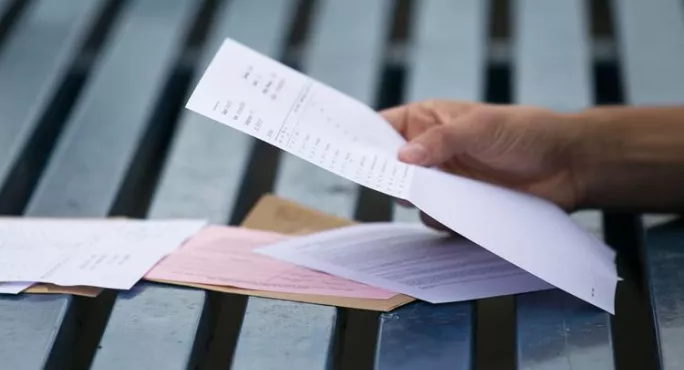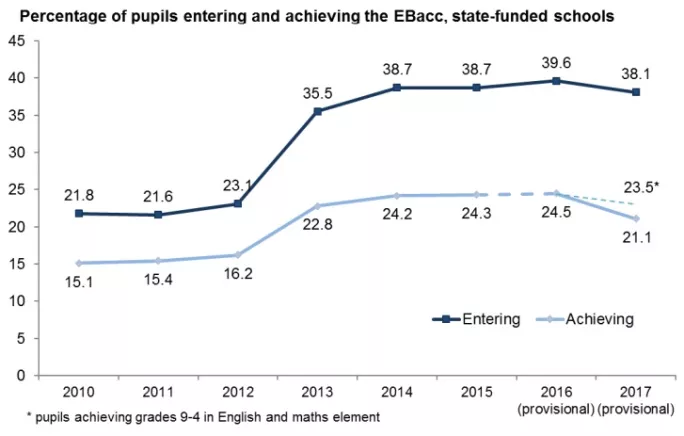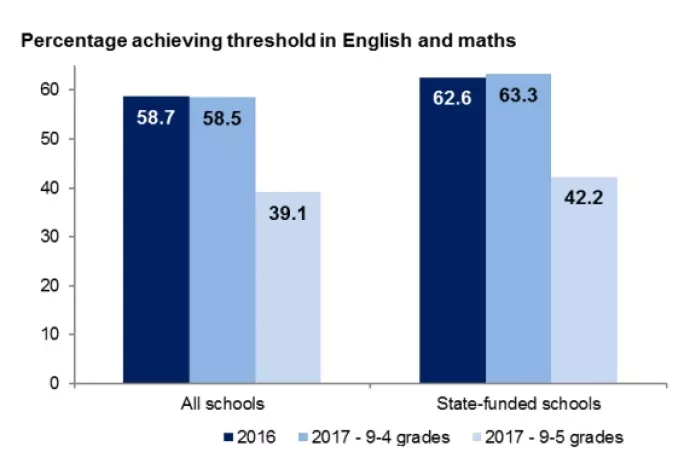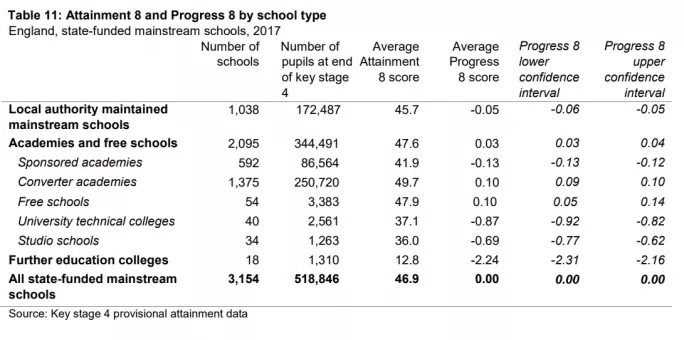The Department for Education has released its provisional GCSE data today.
Here are some key points revealed in the new statistics:
EBacc entry has decreased...
The proportion of pupils entering the
EBacc has decreased by 1.5 percentage points since 2016.
In 2017, 38.1 per cent of pupils in state schools entered the EBacc, compared with 39.6 per cent last year.
But there has been a large increase of 6.2 percentage points in the proportion of pupils entering only four pillars of the EBacc - up to 43.7 per cent in 2017, from 37.5 per cent in 2016.
Of those pupils who entered four of the five EBacc pillars, the majority (80.4 per cent) were missing the languages pillar in 2017.
Entries to EBacc languages dropped by 1.7 percentage points in 2017 to 47.3 per cent.
... and EBacc attainment has also dropped
This year 23.5 per cent of pupils achieved the EBacc by gaining grades 4 or above in English and maths GCSEs and grades C or above in unreformed subject areas. Last year, the proportion was 24.5 per cent - so 2017 brought a drop of 1 percentage point.
And 21.1 per cent achieved the EBacc by gaining grades 5 or above in English and maths GCSEs and grades C or above in unreformed qualifications that count towards the remaining EBacc subject areas.
The average Attainment 8 score per pupil has decreased
The average Attainment 8 score per pupil has decreased by 4 points for all schools to 44.2 - and by 3.8 points for state-funded schools, to 46.0.
However, the drops were expected, following changes to the 2017 point scores assigned to grades, caused by the introduction of the 9 to 1 grading system for GCSEs.
Less than two-fifths achieved grade 5 or above in English and maths
The proportion of pupils achieving the headline measure of grade 5 or above in English and maths was 39.1 per cent for all schools. This figure cannot be compared with previous years.
Meanwhile, 58.5 per cent of pupils in all schools and 63.3 per cent of pupils in state-funded schools achieved grade 4 or above in English and maths.
This figure is comparable to 2016 data because the bottom of a grade 4 in reformed GCSEs maps on to the bottom of a grade C of unreformed GCSEs. Comparison of these figures to 2016 data shows that attainment is broadly stable, with an increase of 0.7 percentage points across state schools.
Free schools are doing better under Progress 8
Schools are now judged against a new Progress 8 measure, rather than the proportion of pupils who achieve five A* to C at GCSE.
This year, free schools, on average, scored +0.10 under Progress 8, which is an improvement on last year when the average score was -0.02.
Overall, university technical colleges (UTCs), studio schools and sponsored academies are still the lowest performers under the measure - with average Progress 8 scores of -0.87, -0.69 and -0.13 respectively.
The report released by the Department for Education says: “The numbers of free schools, UTCs and studio schools with Year 11 pupils are too small to allow robust conclusions to be drawn about their performance at the end of key stage 4, or compare between years.”
But schools standards minister Nick Gibb said today: “The fruits of the government’s reforms are best seen in the performance of free schools and academies, which have achieved some outstanding Progress 8 scores. They account for eight of the top 10 performing schools in the country.
“Often serving areas of significant disadvantage, these schools show that a rigorous curriculum and a strong behaviour ethos is crucial to driving up academic standards in all parts of the country.”
Click here for our poster on how Progress 8 works.
Want to keep up with the latest education news and opinion? Follow Tes on Twitter and Instagram, and like Tes on Facebook.







